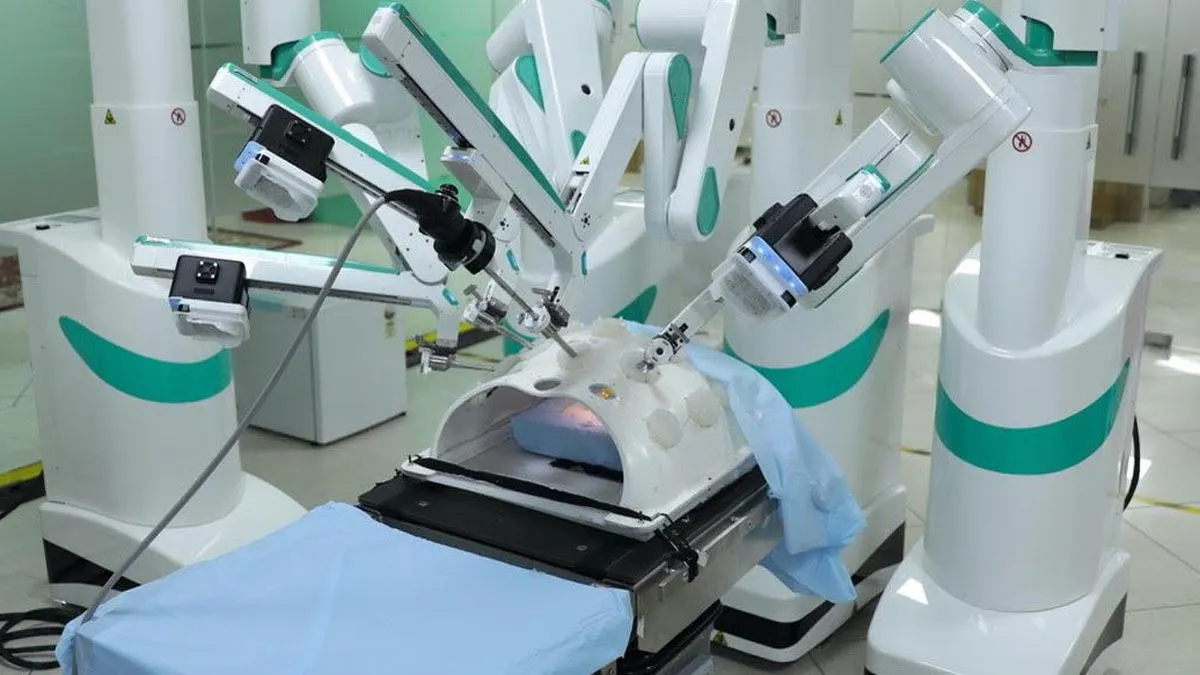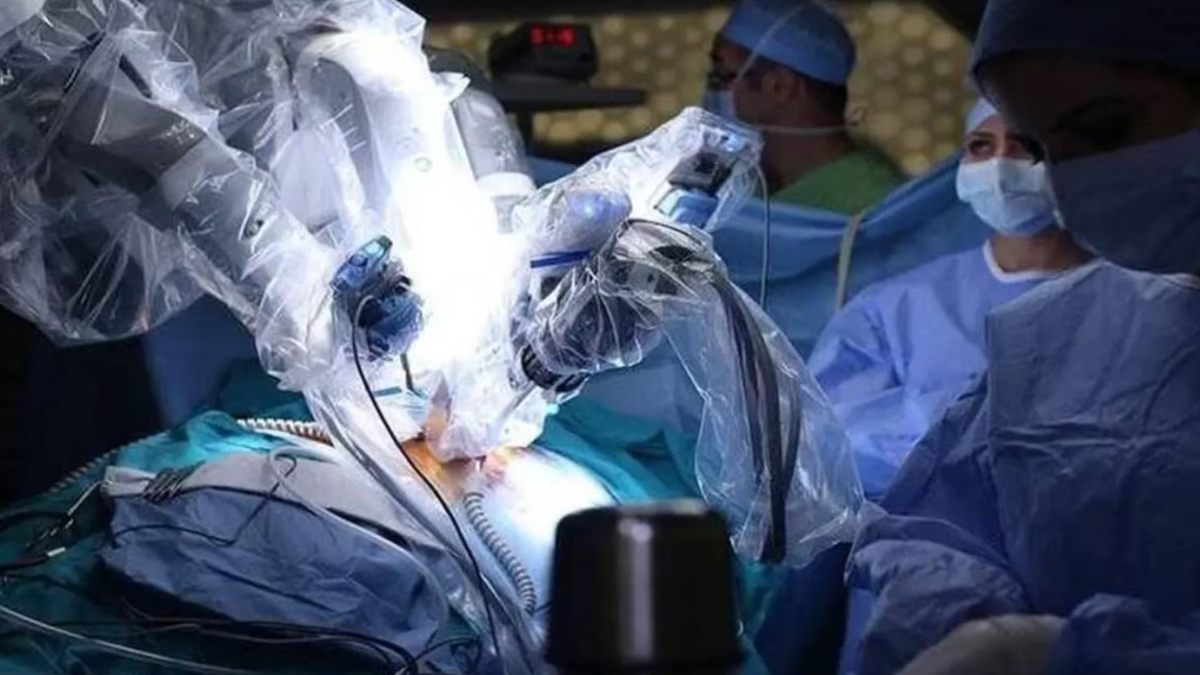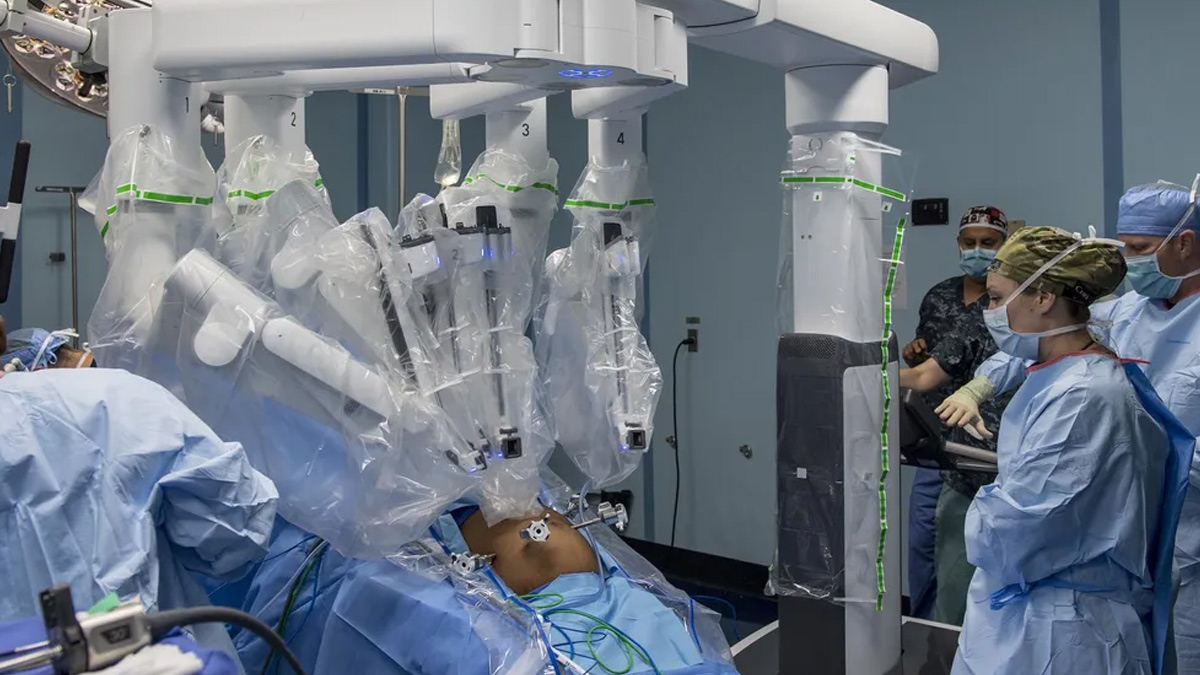
Maharashtra has taken a significant step forward in the field of medical technology with the installation of its first made-in-India surgical robot, SSI Mantra, at Pune's Noble Hospitals and Research Centre. This cutting-edge robotic system, designed and manufactured domestically, marks a milestone in India’s healthcare innovation.
Table of Content:-
Introducing the SSI Mantra Surgical Robot
The SSI Mantra surgical robot, developed in 2017 by Dr Sudhir Srivastava, is a state-of-the-art system designed to enhance precision and outcomes in complex surgeries. It features five lean robotic arms, an immersive 3D HD headset for unparalleled visual clarity, and a vision cart offering 3D 4K imaging for the entire surgical team. These advancements ensure that surgeons can operate with exceptional accuracy and control.
The system recently received approval from the Central Drugs Standard Control Organisation (CDSCO), India’s regulatory body, making it the first indigenous surgical robotic technology to achieve this milestone. Marathi actor Prasad Oak inaugurated the robot at Noble Hospitals, marking the beginning of its use in Maharashtra.

First Robotic Surgery in Maharashtra
Noble Hospitals has already conducted its first procedure using the SSI Mantra system: a robotic right extended hemicolectomy on a patient diagnosed with colon carcinoma. This life-saving surgery showcased the potential of robotic systems in performing intricate and minimally invasive operations.
Dr Ashish Pokharkar, an oncosurgeon at Noble Hospitals, highlighted that the system would be utilized for a wide range of procedures, including general surgeries, cardiothoracic interventions, urology, gynaecology, and other complex operations.
Also Read: Five Years Later, WHO Presses China for Transparency on Covid-19 Origins
Advantages of Robotic Surgery
Robotic surgery offers numerous benefits for both patients and surgeons. According to Dr. H.K. Sale, Executive Director at Noble Hospitals, the minimally invasive nature of these procedures results in:
- Shorter Recovery Time: Tiny incisions and smaller instruments reduce trauma to the body, allowing for quicker healing.
- Less Discomfort: Patients experience less post-operative pain compared to traditional open surgeries.
- Fewer Complications: Enhanced precision minimises the risk of errors.
- Quick Return to Normalcy: Patients can resume their daily routines faster, significantly improving their quality of life.

What Is Robotic Surgery?
Robotic surgery involves the use of robotic arms controlled by a surgeon seated at a console. A 32-inch monitor provides a 3D view of the surgical site, while safety cameras ensure the surgeon’s presence during the procedure.
India’s SSI Mantra robot is modular, with detachable arms capable of performing diverse tasks, including heart surgeries. Its design prioritizes flexibility, making it suitable for a range of surgical applications.
Also Read: FDA Approves Weight-Loss Drug Zepbound For Obstructive Sleep Apnea
Expanding Reach Through Telesurgery
One of the most groundbreaking aspects of the SSI Mantra system is its capability for telesurgery and teleproctoring. These technologies aim to democratize surgical expertise by allowing surgeons to perform or guide procedures remotely. This feature holds the potential to revolutionize healthcare access in remote and underserved areas.
Dr Sudhir Srivastava, Founder and CEO of SS Innovations, expressed optimism about this development: “With telesurgery and teleproctoring, we can decentralize surgical expertise, bringing advanced care to the most remote parts of India and the world.”
A Global Footprint
The SSI Mantra surgical robot has also made its way beyond India, with its recent installation at B&B Hospital in Lalitpur, Nepal. This expansion reflects its growing recognition as a reliable and efficient system for modern surgical practices.
Pioneering the Future of Healthcare
The installation of the SSI Mantra surgical robot in Maharashtra is a significant leap toward integrating advanced technology in Indian healthcare. By prioritizing innovation and accessibility, India is not only improving patient outcomes but also setting an example for other countries to follow.
This achievement underscores the importance of investing in indigenous technologies that have the potential to transform lives, making world-class medical care more accessible and affordable.
Also watch this video
How we keep this article up to date:
We work with experts and keep a close eye on the latest in health and wellness. Whenever there is a new research or helpful information, we update our articles with accurate and useful advice.
Current Version